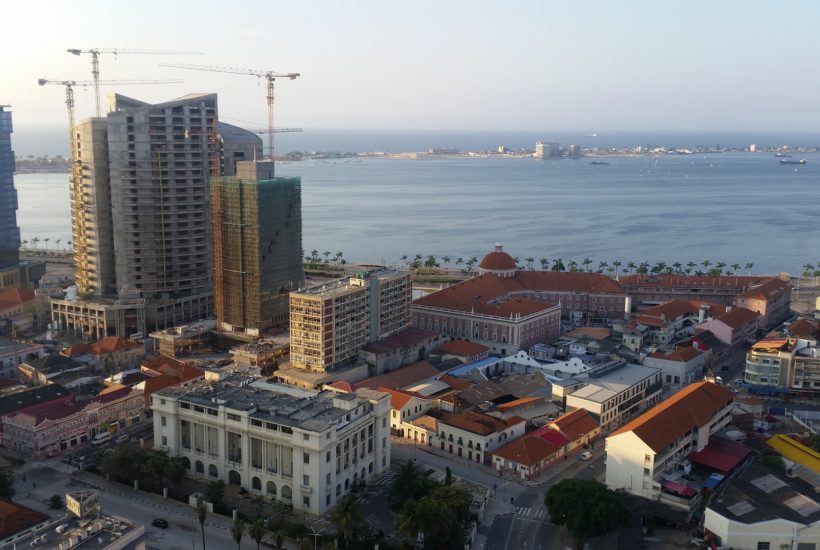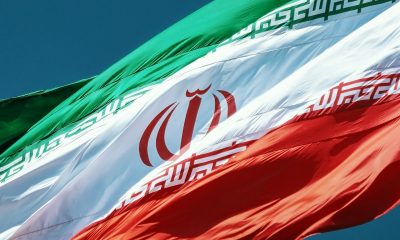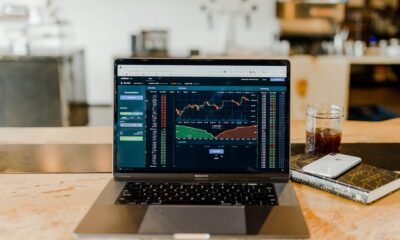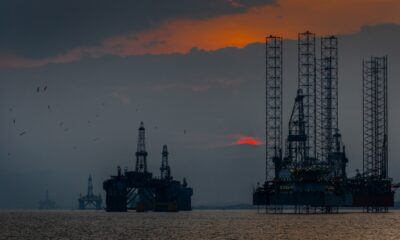Africa
The oil crisis is plummeting Angola’s economy
All African countries are deeply affected by the corona crisis and the fall in oil prices. However, the most affected is Angola. That is because the country’s economy is dependent on oil exports, which account for almost 90% of all the exports. As an Opec member country, Angola must show solidarity with the measures to reduce exports decided by the organization in order to raise the price of oil.

Angola is the African country most affected by the oil crisis linked to the coronavirus pandemic. That is because the oil industry contributes half of the nation’s wealth. Unlike some other countries, such as Algeria, Angola does not benefit from a foreign exchange help to cushion the fall in oil revenues, which account for nearly 90% of its exports.
Worse still, in 2017, according to the Massachusetts Institute of Technology (MIT), Angola sold two-thirds of its oil to a single customer: China. The country seems totally “Sino-dependent”, especially since it is also the main African beneficiary of Chinese development loans. Around $50 billion between 2000 and 2017, nearly half of which is guaranteed on oil, according to the NGO Natural Resource Governance Institute (NRGI).
The costs of the war resulted in an almost absolute dependence of the economy on oil exports, Angola competing with Nigeria for the rank of first crude producer in sub-Saharan Africa. Between the end of the war in 2002 and the start of the fall in the price of oil in 2014, the country was the scene of a frantic race towards its energy resources. Parallel to the American and French oil companies appeared the Chinese ones, which granted very generous loans in exchange for participation in the exploitation of oil. Chinese companies have intervened in railways, roads, and construction. These infrastructures are of poor quality, but they were made with fresh money.
If you want to find more details about the problems facing Angola due to the slash in oil prices and to read the latest economic news in the world, download for free the Born2Invest mobile app.
China is omnipresent in Angola
Thus, the country is repaying part of its debt to China in oil. A mechanism that emerged at the beginning of this century called “natural resource-based lending.” In the absence of foreign currency, this barter system is an easy way to access Chinese or other loans, since they are backed by resources. For Angola, the repayment of part of the Chinese debt represents about ten shipments of oil per month.
As an Opec member country, Angola must also show solidarity with the measures to reduce exports decided by the organization in order to raise the price of oil. Since barter does not bring in any foreign currency, Luanda has decided to reduce deliveries to China by around 60%, according to Reuters estimates.
However, that will not be enough to get through the crisis. And in any case, the current contracts must be honored. Recently, the Chinese Foreign Ministry confirmed that Angola had requested debt relief and that “as an important strategic partner of Angola, China takes Angola’s needs seriously. As one cannot do without the other, both partners need to find common ground.”
The national company Sonangol borrowed $2.5 billion from banks
Especially since Angola also has other slates, including a $3.7 billion loan to the IMF obtained in 2019. Meanwhile, the national oil company, Sonangol, borrowed $2.5 billion from banks. The management of Angola’s oil sector has never been transparent. Oil has largely contributed to the enrichment of the people in power, such as Isabelle Dos Santos, placed by her father’s president, José Eduardo Dos Santos, at the head of the national company.
The sweep that followed Dos Santos’ departure from power and the desire to reform the oil sector have not yet borne fruit.
__
(Featured image by bmadeira via Pixabay)
DISCLAIMER: This article was written by a third party contributor and does not reflect the opinion of Born2Invest, its management, staff or its associates. Please review our disclaimer for more information.
This article may include forward-looking statements. These forward-looking statements generally are identified by the words “believe,” “project,” “estimate,” “become,” “plan,” “will,” and similar expressions. These forward-looking statements involve known and unknown risks as well as uncertainties, including those discussed in the following cautionary statements and elsewhere in this article and on this site. Although the Company may believe that its expectations are based on reasonable assumptions, the actual results that the Company may achieve may differ materially from any forward-looking statements, which reflect the opinions of the management of the Company only as of the date hereof. Additionally, please make sure to read these important disclosures.
First published in franceinfo:, a third-party contributor translated and adapted the article from the original. In case of discrepancy, the original will prevail.
Although we made reasonable efforts to provide accurate translations, some parts may be incorrect. Born2Invest assumes no responsibility for errors, omissions or ambiguities in the translations provided on this website. Any person or entity relying on translated content does so at their own risk. Born2Invest is not responsible for losses caused by such reliance on the accuracy or reliability of translated information. If you wish to report an error or inaccuracy in the translation, we encourage you to contact us.

-

 Crowdfunding6 days ago
Crowdfunding6 days agoFrom Confiscation to Cooperation: Funding Casa de la PAZ’s Social Transformation
-

 Impact Investing2 weeks ago
Impact Investing2 weeks agoGlobal Energy Shift: Record $2.2 Trillion Invested in Green Transition in 2024
-

 Business21 hours ago
Business21 hours agoWhy the iGaming Industry Offers Some of the Best ROI for Affiliate Marketers
-

 Crowdfunding1 week ago
Crowdfunding1 week agoDolci Palmisano Issues Its First Minibond of the F&P “Rolling Short term” Program
























